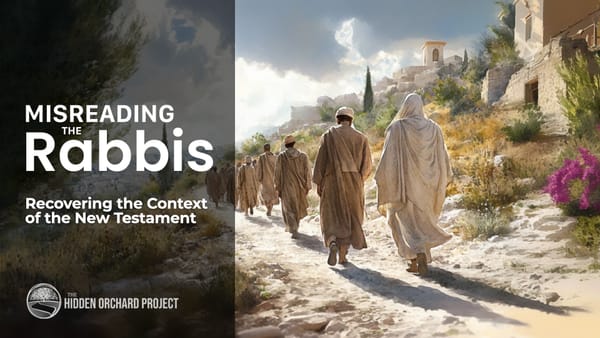Is the Oral Torah "Biblical"? pt. 2
In part 2 we will look at these elements from a simpler, more logical perspective. We will point to some obvious and perhaps not-so-obvious examples of why an oral tradition is necessary.

In part 1, we looked at how fundamental tradition is to understanding, applying, and identifying "scriptures". We looked at an example of the oral tradition being reaffirmed by scripture itself.
In part 2, we will look at this case from a more logical perspective. We will point to some obvious (and perhaps not-so-obvious) examples of why an oral tradition is necessary.
Ambiguities in Scripture
Believe it or not, the Torah has information gaps or passages that lack practical or technical details. Many of these are not insignificant but are critical to upholding the commandments of G_D, as we will see. This could only be the case if the system were built with the expectation of an accompanying dynamic oral tradition.
Institutional knowledge
At a high level, we can see that many ideas and concepts are not given any explanation in either the Tanakh or the New Testament. The authors seem to hold the assumption that there is no need for further information. Of these topics, the more common are; angels and demons¹, the afterlife, reward and punishment², the resurrection of the dead, and even the idea of Messiah³.




